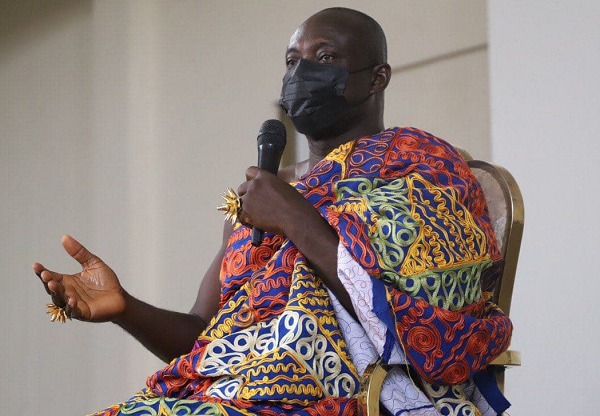
Graphic Ashanti dialogue: Let’s invest heavily in sanitation — Speakers
Speakers at the Ashanti Regional version of the Stakeholders Dialogue on Sanitation organised by the Graphic Communications Group Limited, in partnership with Zoomlion Ghana Limited, have called for heavy investment in the sanitation sector.
They said such investment would not only push forward the national sanitation agenda but also purposefully drive Ghana’s quest to become the cleanest country in Africa.
The speakers were the Amakomhene, Nana Adu Mensah Asare; the Chief Operations Officer of the Environmental and Sanitation Cluster of the Jospong Group of Companies, Mrs Florence Larbi; the Ashanti Regional Director of Environmental Health, Mr Don Awantungo; the Director of Research at the Komfo Anokye Teaching Hospital, Dr Kwadwo Sarbin, and the Head of Waste Management at the Kumasi Metropolitan Assembly (KMA), Mr Osei Assibey Bonsu.
According to the speakers, one feature of developed countries was their level of environmental cleanliness.
Attitudinal change
Another recommendation at the day’s dialogue was a call for a change in attitude by the people to ensure that they keep the environment clean and adhere to sanitation bye-laws.
There was also the call for a massive sensitisation and awareness creation programme to whip up the interest of the people to keep the environment clean.
According to the speakers, even though most people were aware of the need to keep the environment clean, some seemed to backslide. They were, therefore, of the view that sustained sensitisation, coupled with the enforcement of the law, would keep the people on their toes and keep the environment clean.
Traditional rulers

The Amakomhene, who represented the Asantehene, Otumfuo Osei Tutu II, pleaded with traditional and opinion leaders not to interfere in the enforcement of the bye-laws by pleading for their relatives and loved ones when they were caught up by the law.
According to him, when people see the law working, they would begin to respect the law and keep their environment clean.
Nana Asare expressed concern that chiefs were rarely consulted in the implementation of programmes regarding the welfare of the people in their communities.
He said unlike in the past when chiefs wielded a lot of power and could easily rally their people for communal labour, democracy had taken most of the powers of chiefs away, and as a result they were rarely consulted in the implementation of government policies.
According to him, there was the need to reverse that trend.
Waste management
Taking her turn, Mrs Larbi said with the increasing population, it was becoming difficult to get large tracts of land to be used for landfill sites.
That, she said, required that new approaches be adopted in waste management, including the establishment of treatment plants and transfer stations to reduce the turnaround time for intermediary service providers.
She also said there was the need to establish more transfer stations in the metropolises, where tricycles, popularly known as ‘aboboyaa’, could deposit waste and go back to the communities to pick more waste, instead of travelling long distances to dump waste.
According to her, because the dumping or landfill sites were far from the cities, most of the tricycles were unable to go long distances and some ended up depositing the waste they carried in gutters and streams.
She said Zoomlion was building waste treatment plants in every region to turn waste into raw materials for industries.

Nana Adu Mensah Asare (in Kente), the Amakomhene, interacting with Mr Kobby Asmah (left), the Editor of the Daily Graphic, after the dialogue in Kumasi. With them is Mrs Florence Larbi, the Chief Operations Officer, Environment & Sanitation, Zoomlion Ghana Limited. Picture: EMMANUEL BAAH
Health education
Dr Sarbin also observed that filth was the cause of most diseases in the country and was of the view that ensuring a clean environment would greatly improve the health of the people as well.
He said the effect of bad sanitation was not restricted to those who caused the nuisance but the entire community.
In that regard, he said, it was everyone’s responsibility that the environment be kept clean for the benefit of all.
Attitude

For his part, Mr Bonsu deplored the inadequate number of cleaners at the KMA, as well as Ghanaians’ attitude towards environmental cleanliness.
He said most people assumed that because they paid taxes and other daily tolls, it was the responsibility of the assembly to sweep and clean the city.
He commended the Graphic Communications Group Limited for initiating the dialogue.
When he mounted the podium, Mr Awantungo said environmental and sanitation officers would have to be resourced and made visible in the communities to enforce the bye-laws on sanitation.
In attendance at the dialogue was the Editor of the Daily Graphic, Mr Kobby Asmah.
